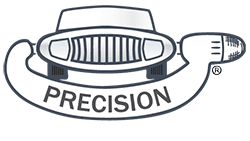According to the latest survey of Oregon collision repair shops, being the largest auto insurer in Oregon doesn’t automatically make you the best. Since 2004, the Northwest Automotive Trades Association (NATA) has surveyed hundreds of collision repair shops throughout the state to see how well the top 20 insurance companies rank regarding the policies, attitudes, customer service, and payment practices that ensure safe, quality repairs.
This year, two Northwest-based auto insurers made it to the top of the list. Oregon Mutual came in at number one, while Mutual of Enumclaw was a close second. They have been among the top four insurers in the survey every year, but this year, they are being recognized as being the best at taking care of Oregon drivers after an accident.
“A mutual company is owned by the policyholders,” said Thomas Walsh, Director of Claims for Oregon Mutual Insurance. “We are able to plan and operate with a longer view than companies who must show a profit for shareholders each quarter.” So it’s probably no surprise that Oregon Mutual & Mutual of Enumclaw are ranked so high. “Our main goal is excellent customer service,” Walsh added. “Our success as a company results in lower premiums for our policyholders rather than dividend payments to stockholders.”
When asked why he thought Oregon Mutual was awarded the highest ranking, Walsh responded: “Oregon Mutual has a variety of practices that maximize our customers’ satisfaction.
- We ask that repair facilities do not use aftermarket sheet metal in the repair of our customer’s vehicles.
- We ask that repair facilities do not utilize “used, reconditioned” suspension parts in repairing vehicles.
- Our direct repair facilities are asked to use a fair labor rate for the territory they do business in, but we do not set a “fixed” repair rate.
- We do not ask for any discounts from our direct repair partners on parts.
- We waive our insured’s deductible when subrogation recovery is available from another insurance company.
All of these practices lead to improved customer satisfaction and carry the added benefit of making repair facilities view us as a partner rather than an adversary.”
NATA’s executive director, Barbara Crest, believes that the results found in this year’s survey will be helpful to both the insurance companies as well as the consumer. “Just as medical providers see how health insurers take care of patients, collision repair shops interact with auto insurers on a daily basis, so we feel it’s worthwhile to ask how those insurers treat Oregon drivers after an accident.”
